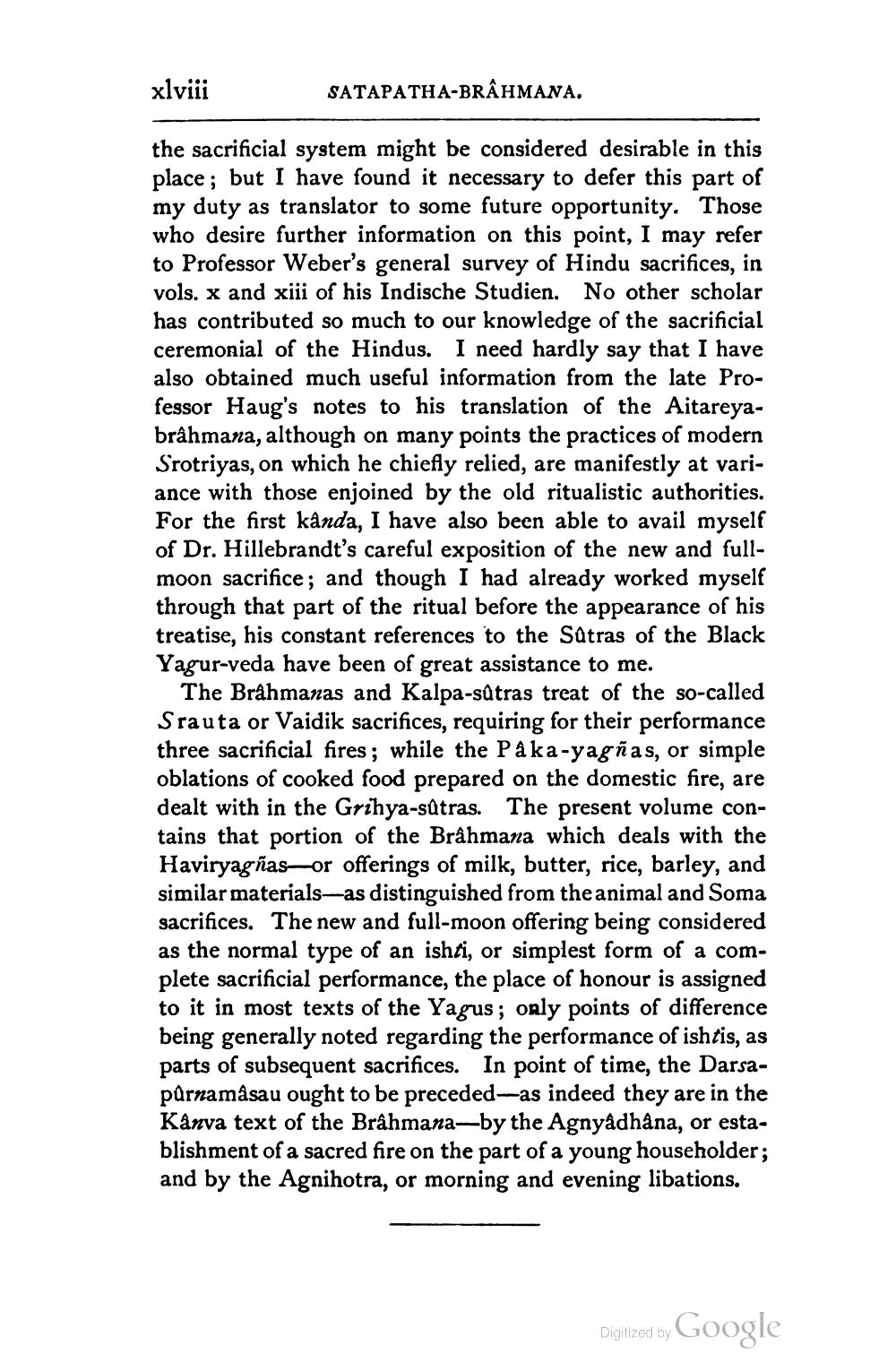________________
xlviii
SATAPATHA-BRAHMANA.
the sacrificial system might be considered desirable in this place; but I have found it necessary to defer this part of my duty as translator to some future opportunity. Those who desire further information on this point, I may refer to Professor Weber's general survey of Hindu sacrifices, in vols. x and xiii of his Indische Studien. No other scholar has contributed so much to our knowledge of the sacrificial ceremonial of the Hindus. I need hardly say that I have also obtained much useful information from the late Professor Haug's notes to his translation of the Aitareyabrâhmana, although on many points the practices of modern Srotriyas, on which he chiefly relied, are manifestly at variance with those enjoined by the old ritualistic authorities. For the first kända, I have also been able to avail myself of Dr. Hillebrandt's careful exposition of the new and fullmoon sacrifice; and though I had already worked myself through that part of the ritual before the appearance of his treatise, his constant references to the Satras of the Black Yagur-veda have been of great assistance to me.
The Brahmanas and Kalpa-sútras treat of the so-called Srauta or Vaidik sacrifices, requiring for their performance three sacrificial fires; while the Påka-yagñas, or simple oblations of cooked food prepared on the domestic fire, are dealt with in the Grihya-sútras. The present volume contains that portion of the Brahmana which deals with the Haviryagñas-or offerings of milk, butter, rice, barley, and similar materials—as distinguished from the animal and Soma sacrifices. The new and full-moon offering being considered as the normal type of an ishti, or simplest form of a complete sacrificial performance, the place of honour is assigned to it in most texts of the Yagus; only points of difference being generally noted regarding the performance of ishtis, as parts of subsequent sacrifices. In point of time, the Darsapurnamasau ought to be preceded -as indeed they are in the Kanva text of the Brâhmana—by the Agnyâdhana, or establishment of a sacred fire on the part of a young householder; and by the Agnihotra, or morning and evening libations.
Digitized by Google




